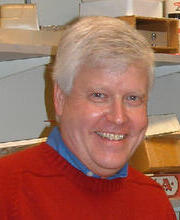Lee Gehrke

We work on positive strand RNA viruses, with a current focus on understanding how cells sense viral invaders to initiate an immune response. We also have interests in global health, and we collaborate with engineers to develop a rapid point of care diagnostic device to detect pathogens for real-time epidemiology.
Distinguishing self from non-self is a key to detecting intracellular foreign invaders. Viral RNAs have features referred to as Pathogen Associated Molecular Patterns (PAMPs) that are recognized as non-self by host Pattern Recognition Receptors (PRR). Following recognition of PAMPs by PRRs, a signal transduction cascade is activated, leading to the establishment of an anti-viral state. This innate immune response is very rapid and precedes the adaptive immune response that produces antibodies. We work on defining the sequence and structural features present in viral RNA molecules that are responsible for innate immune activation. Evidence suggests that individual viral RNAs have distinct signals that stimulate specific receptors. For example, influenza activates the RIG-I receptor, while poliovirus activates the MDA5 receptor. Surprisingly, dengue virus RNA activates both, for reasons unknown.
Why don't our own (self) RNAs activate an innate immune response? The answer to this question seems to be 1) self RNAs lack some of the structural features that are known to activate PRR (like a 5' triphosphate group), and 2) self RNAs contain modified nucleotides that somehow block activation of innate immune signaling. These modifications include, for example, methylations. We work on understanding how RNAs containing modified nucleotides evade innate immune surveillance and activation.
Rapid diagnostics are badly needed to 1) identify the infectious agent responsible for patients' fevers, 2) identify food pathogens, and 3) identify pathogens used in a bioterror attack. We are leading an NIH-funded multidisciplinary group that is developing a multiplexed rapid point of care diagnostic device that is machine-readable for GIS and real time epidemiology. The device is being designed for the “citizen-sensor” to be used without specialized reagents or equipment.
Contact Information
Building E25-406
45 Carleton Street
Cambridge, MA 02142
